Jill Carnegie is the founder of Valley of the Kings Sanctuary located in Sharon, Wisconsin. Valley of the Kings Sanctuary stands as the second oldest organization dedicated to the rescue of big cats in the United States, having provided a safe haven for abused animals for over five decades.
The majority of the majestic big cats that find refuge at Valley of the Kings Sanctuary have suffered from severe mistreatment, enduring malnourishment and physical deformities inflicted upon them by individuals who perversely profited from their pain and suffering in the name of entertainment.
With unwavering dedication, Jill has made it her life’s calling to provide compassionate care for these magnificent creatures, including lions, tigers, bears, and more, rescuing them from a lifetime of anguish.
The Exotic Animal Trade
The exotic animal trading industry generates a staggering $15 billion annually. It is alarming that it remains legal to purchase, trade, and breed captive animals across several regions in the United States.
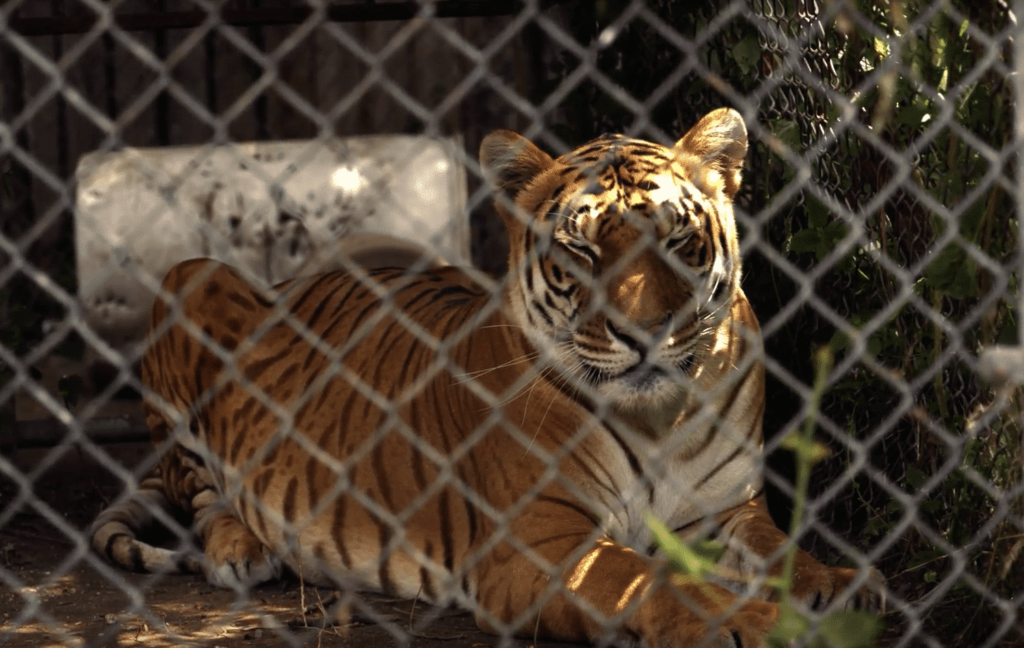
Regrettably, exotic animals often experience distressingly short lives characterized by cruel conditions once they are in the possession of their owners. Many of these creatures are confined to inadequate enclosures, subjected to improper nourishment, and never allowed outside.
It is disheartening that animals can be treated as mere property, devoid of their sentience, and used solely for the benefit of their owners. These so-called “pets” are exploited as revenue sources for profit-driven businesses, perpetuating a system that disregards their welfare and inherent value.
Big Cat Exploitation
The act of utilizing young big cats for cub petting attractions is a distressing practice that causes significant stress to the animals, despite bringing pleasure to humans.
Jill expressed her disapproval of this practice, stating, “It’s a sad situation, and people should never pay to hold a young cat.” She went on to describe the procedure as “absolutely disturbing” and explained how the babies are separated from their mothers, bottle-fed, and passed around, leaving them exhausted and distressed.
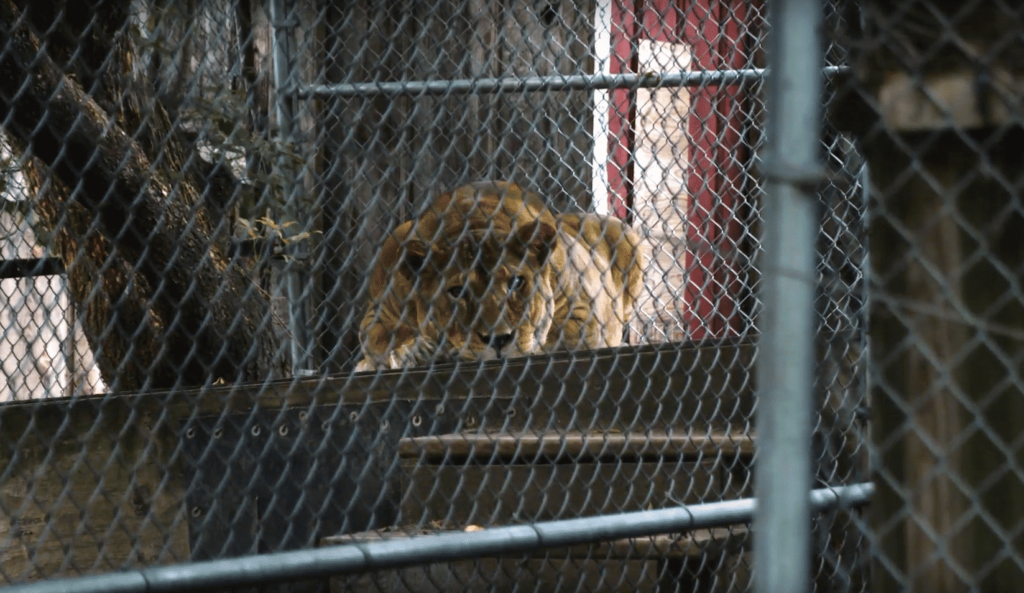
It is important to consider the long-term consequences of cub petting, as these adorable cubs eventually grow into potentially dangerous juvenile cats. Jill highlighted the issue, saying, “Nobody ever asks what happens when they’re done with them.”
The reality is far from pleasant. As the cubs mature, they require vast areas to roam and substantial amounts of meat for proper nourishment. Unfortunately, young big cats go from being lucrative attractions to burdensome expenses for their owners, often resulting in their abandonment.
Unlike unwanted domestic animals, exotic cats cannot simply be dropped off at an animal shelter or left on the side of the road. Consequently, owners resort to more lethal methods of disposal.
The exotic animal industry profits from exploiting these animals in various ways. Their hides are sold as pelts, their meat for consumption, and even their bones are used in traditional Chinese medicine as virility enhancers.
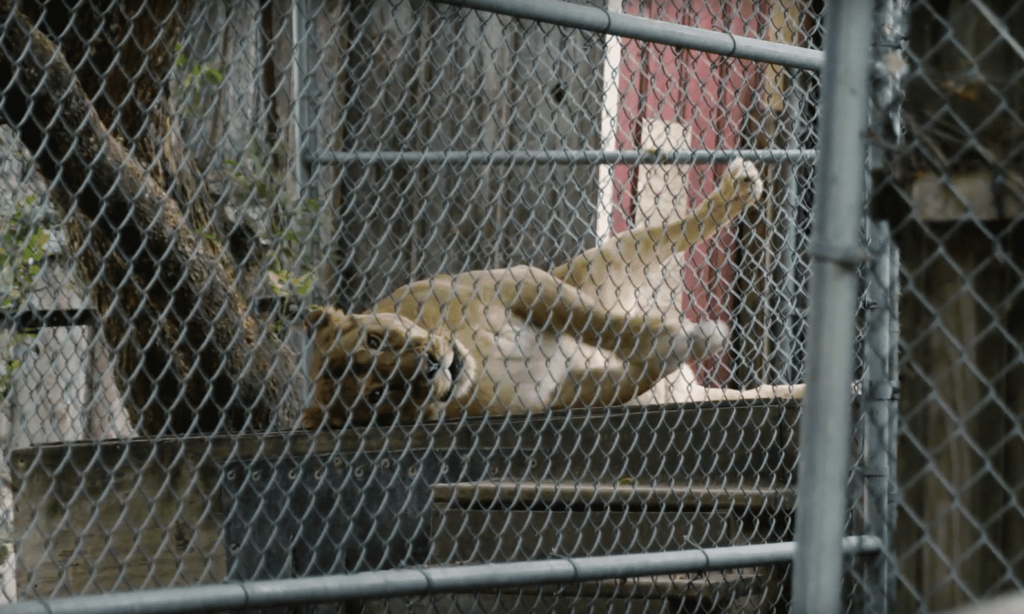
Lions, in particular, are sold to game preserves for canned hunts, where they are hunted by the same people who once cuddled them as cubs. Jill shared her disbelief, stating, “In Texas, big game hunts allow you to take a lion and kill it.”
Canned hunting, a lucrative business according to PETA, involves “hunters” paying exorbitant amounts, up to $45,000, to kill a sedated or tethered lion. Due to the hunters’ desire to display the animal’s head as a trophy, they aim for the abdomen, resulting in a slow and agonizing death for the big cat.
While canned hunting has been banned in certain states, it continues to thrive in others. However, thanks to the Big Cat Act, a significant animal welfare law passed in 2023, lions and tigers will soon be much rarer.
About The Big Cat Act
The Big Cat Public Safety Act (Public Law No: 117-243) was signed into law by President Biden on December 20, 2022. This legislation prohibits individuals from privately owning lions, tigers, leopards, cheetahs, jaguars, cougars, and hybrid species.
Although current owners of big cats are allowed to keep their animals, they are required to register them. This ensures that first responders and animal control are informed about the presence of these animals.
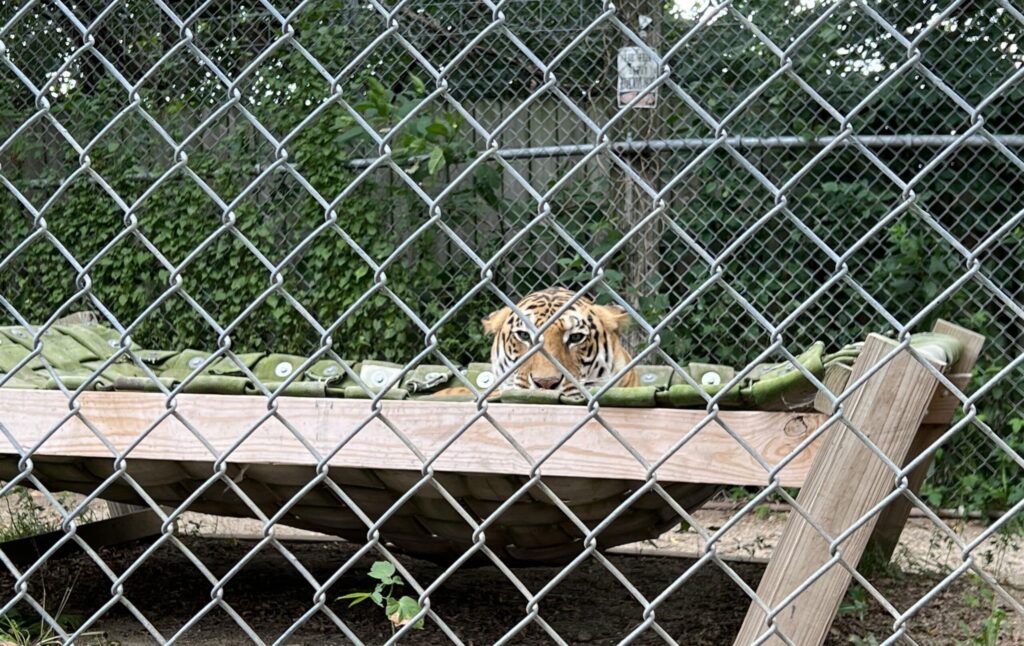
Under the new law, existing big cat owners are prohibited from breeding their cats or selling their body parts. This provision aims to significantly reduce the prevalent issue of backyard breeding in the United States.
Additionally, the law puts an end to public interactions with big cats, effectively shutting down the cruel practice of cub petting. This measure seeks to break the cycle of exploiting young cats, which are typically discarded from the industry after a mere 12 weeks, and prevent them from entering the exotic pet trade.
While the law does exempt universities, zoos, and sanctuaries like Valley of the Kings, it does have limitations. Notably, it does not ban canned hunts, which are still prevalent in many states. Despite this, Jill believes that the Big Cat Public Safety Act is a step in the right direction.
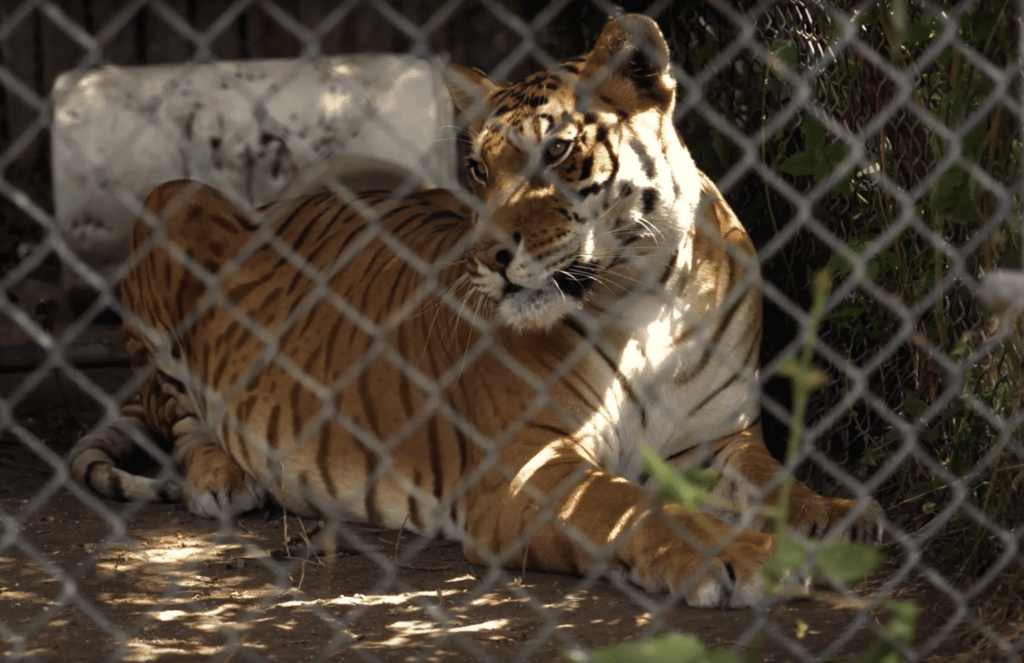
As a direct result of the 2023 legislation, the Big Cat Act, lions and tigers will soon become scarce, effectively curbing the practice of canned hunting in the United States.
About Valley of the Kings Sanctuary
Jill has been managing Valley of the Kings Sanctuary for decades, acquiring the land with the explicit purpose of providing a home for unwanted and abused tigers. Over time, the sanctuary expanded its scope to include all big cats and other unwanted animals that crossed their path.
Currently, Valley of the Kings Sanctuary houses various animals, including tigers, bears, wolves, foxes, bobcats, peacocks, emus, horses, cattle, hundreds of feral cats, a serval, a giant tortoise, and one female lion.
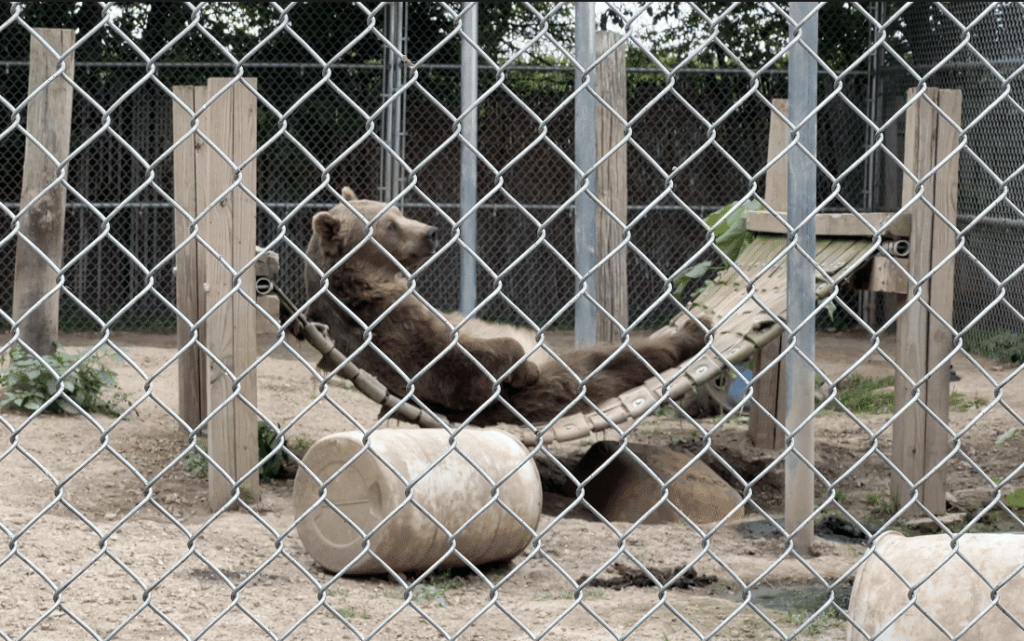
Throughout the sanctuary’s existence, Jill has rescued big cats that suffered mistreatment at circuses, leaving them with permanent burn marks from jumping through fiery hoops. There were also cases of big cats used in Hollywood, with their jaws wired shut to prevent biting, as well as aged big cats slated for euthanasia.
Jill explained that many zoos are guilty of abandoning animals due to their age. While big cat cubs are a popular attraction, once they reach four months, they lose their value and are often euthanized to make space for the following year’s cubs.
Another way animals end up at Valley of the Kings Sanctuary is through government agencies seizing big cats from criminals who keep them as intimidating pets.
Did you miss Niccalina Santilli’s Featured Showcase?
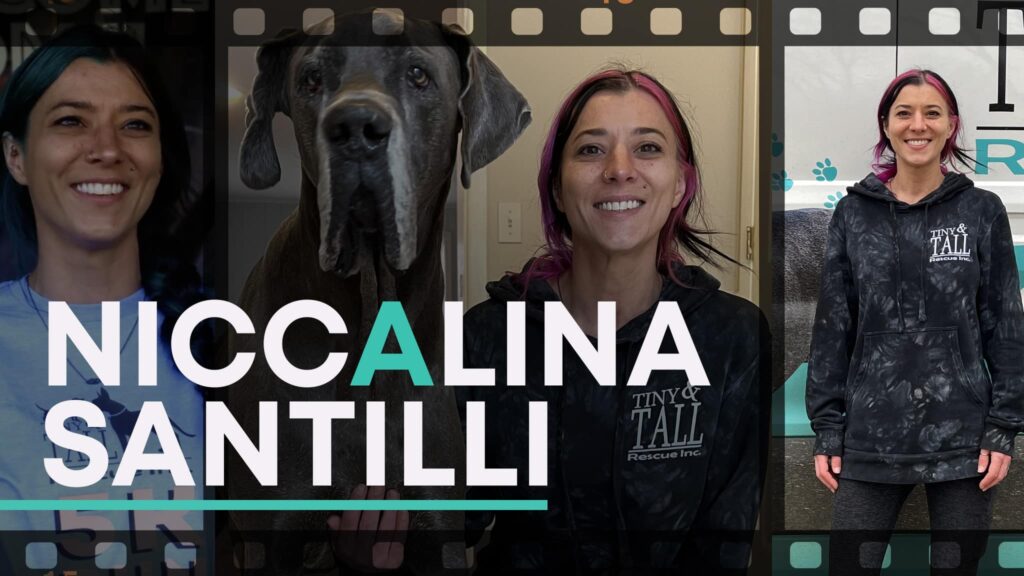
Unfortunately, big cats rescued from criminal situations suffer severe malnourishment issues and deformities due to years of confinement in small enclosures.
Despite the government relying on Valley of the Kings Sanctuary, the sanctuary has never received any financial assistance from state or federal funds. Instead, they rely solely on private donations from supporters and local businesses. These funds cover the animals’ food requirements, including approximately 600 lbs. of meat daily, as well as their medications and staff salaries.
Moreover, Valley of the Kings Sanctuary heavily relies on a dedicated group of volunteers who contribute their time and effort to feed, clean, and maintain the animals’ enclosures. These volunteers also assist in constructing structures to accommodate the continuous influx of new rescues.
Why Jill Carnegie Is A Hero
Jill has dedicated her life to caring for animals that have been abused and abandoned by others. Despite their pressing medical issues and deformities, she rescues them and provides a peaceful life for them at her sanctuary. Good food, friends, and toys are provided to ensure their well-being.
Jill shares a strong bond with the animals under her care, even more so than with other people. She observes that despite being apex predators, they are content creatures who find joy in love.
She believes that the animals are grateful for their new lives at the sanctuary after a lifetime of abuse. In contrast to humans, Jill remarks that they are not mean or vicious killer animals.
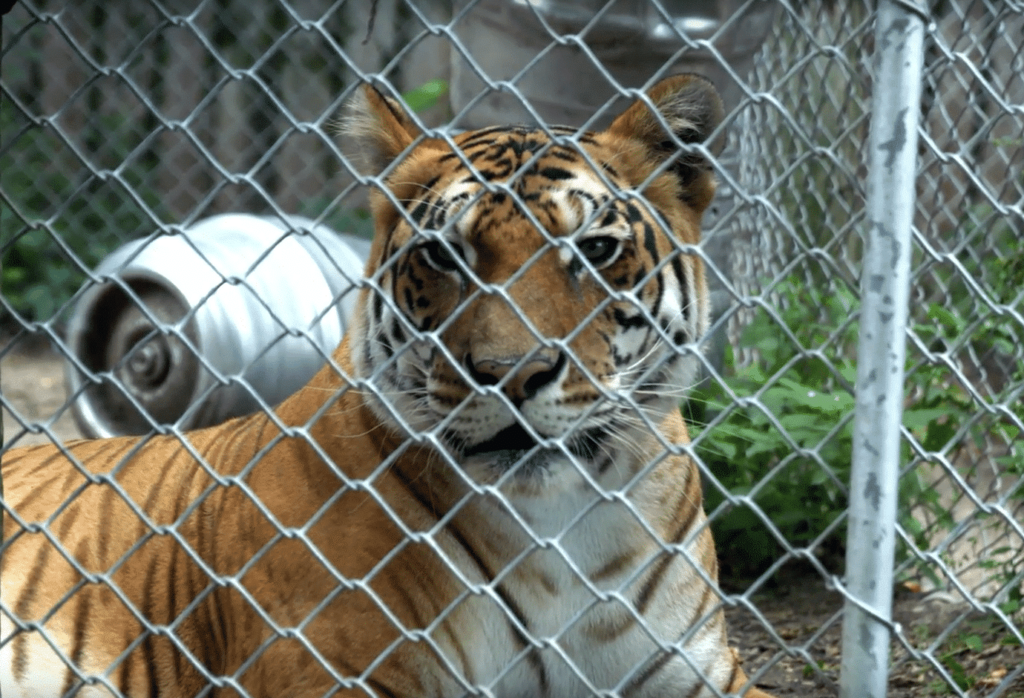
For decades, Jill has operated Valley of the Kings Sanctuary and has never personally benefited financially from the sanctuary. In fact, she often covers the shortfall of donations out of her own pocket.
Living a simple and primitive life, she foregoes paychecks and ensures that 100% of the donations go directly to the animals.
Jill resides on the sanctuary property with her husband and has made arrangements to secure the legacy of the sanctuary by willing it, along with her land, to its animal inhabitants.
Valley of the Kings Sanctuary Resources
Valley of the Kings Sanctuary is in a constant struggle to feed, house, and attend to the medical needs of the animals in their care. You can support their mission by visiting the resources below.
DONATE to VOTK through PayPal.
Become a MEMBER to visit the sanctuary.
Show support by buying something off their SUPPLIES WISH LIST.
Make a direct purchase for the sanctuary from AMAZON, TARGET, or CHEWY.
Buy some VOTK MERCH.
Meet the ANIMALS of Valley of the Kings Sanctuary.
Check out the VOTK WEBSITE.
Visit Valley of the Kings Sanctuary’s FACEBOOK page for updates and videos.